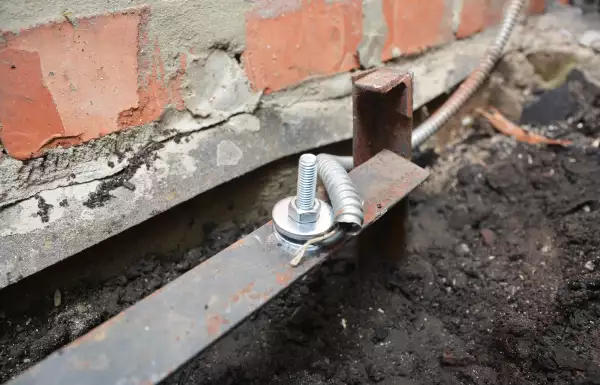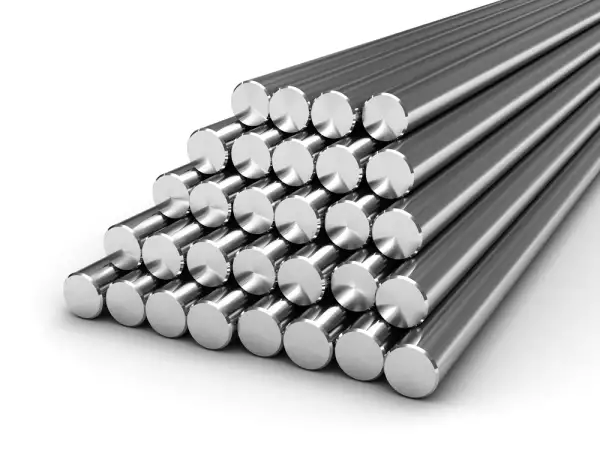Quite recently, hardly anybody thought about the materials grounding conductors are made of. Typically common, so-called “rough” steel was used. The result was predictable – the grounding was in working condition for ten years, after which the corrosion would destroy a fair amount of the grounding device making it inoperative.
Now, after the introduction of such regulatory documents as GOST R 50571.5.54-2013 and GOST R IEC 62561.2-2014 that prescribe the use of materials that provide the necessary corrosion resistance, hardly anybody will risk cutting down expenses and making grounding in old-fashioned way. And the savings are only speculative, after a few years of operation of the facility, a complete reconstruction of the grounding device will be required, exceeding the cost of corrosion-resistant grounding in terms of costs.

The market assortment of corrosion-resistant materials for grounding switches is not very large, but the choice is far from simple. How to understand what material to use: copper, copper-plated steel, stainless steel or galvanized steel? We will answer this question and help you choose the right ground electrode suitable for certain conditions.
Let's consider what are the features of grounding conductors made of various metals, as well as what factors affect their service life.
Copper grounding switches
Copper grounding switches are resistant to corrosion in almost any environment. Soil of high acidity could be an exception. The service life of such grounding switches in ordinary soils is more than 100 years, in aggressive soils - more than 50 years.
Due to the fact that copper is a rather soft material, it is problematic to use long vertical electrodes. Two to three meters is a limit, longer ones will bend during installation. Another disadvantage of pure copper will be its high price.
Copper-plated grounding switches
Grounding switches with a copper coating (in accordance with GOST R 50571.5.54-2013 it should be at least 250 microns) are very durable in most types of soils. Similar to pure copper grounding switches, their service life is more than 100 years in slightly aggressive soils, and more than 50 in alkaline and acid soils. The only unsuitable conditions for copper-plated grounding conductors are strongly acidic soils. But even in such aggressive environments, the service life will be about 30 years.

Щелочь - Alkali
This is due to the fact that in case of electrochemical corrosion, even such a thin layer of copper remains unharmed, because it is restored due to the steel inside. The direct layer of copper corrodes only under inappropriate strongly acidic conditions.
A significant advantage of copper-plated steel compared to pure copper is its mechanical strength. This makes it possible to install large vertical electrodes; it is possible to actually hammer the electrode in 30 meters or more.
The price category of copper-plated grounding switches is much lower than that of pure copper. In terms of price / quality / durability, copper-plated steel will be the best choice.
Galvanized steel grounding switches
Such grounding switches can be called the basic budget corrosion-resistant option of all. Although galvanized steel provides a much longer service life than ordinary rough steel, it cannot be compared with the materials described above.
Galvanized steel is completely incompatible with solutions of salts and alkali. In environments containing them, zinc actively corrodes, completely dissolving in about 10 years. In other conditions, galvanized grounding switches last about 30 years what is not always suitable for objects with a long estimated life.
Not very pleasant for galvanized steel will be the proximity to the steel reinforcement of the foundation. In the process of electrochemical corrosion, the zinc layer is oxidized (destroyed), restoring steel. As a result, the galvanized ground electrode will serve even less.

Таблица электрохимических потенциалов (мВ), возникающих между соединенными проводниками - Table of electrochemical potentials (mV) occurring between connected conductors
Металл - Metal
Медь, ее сплавы - Copper, its alloys
Свинцово-оловянный припой - Lead-tin solder
Алюминий - Aluminum
Дюралюминий - Duralumin
Сталь мягкая - Mild steel
Нержавеющая сталь - Stainless steel
Цинк покрытие - Galvanized coating
Хром покрытие - Chromium coating
Серебро - Silver
Углерод (графит) - Carbon (graphite)
Золото - Gold
Платина - Platinum
Mechanical connection of metals with electrochemical potential of more than 0.6 mV is not allowed.
The connection of the galvanized coating with steel, although within acceptable limits, cannot be called neutral either. Zinc “fits” to other metals even worse; it is the most difficult in terms of pair selection, as we can see from the table.
Stainless steel grounding switches
Grounding switches use corrosion-resistant steel of 03X18H10 grade, or similar with a similar percentage of chromium and nickel. A special combination of chemical elements in the steel of this brand allows it to demonstrate extreme resistance to corrosion in any environment. The only weak link may be the aquatic marine environment.
Stainless steel grounding service life is 100 years or more. The cost of stainless earth electrodes is higher than other materials, nevertheless, the corrosion-resistant qualities make it an excellent choice for objects requiring high reliability, as well as if the dimensions of the grounding device are not very large.
Conclusion
As we can see from this short analysis, corrosion-resistant grounding switches can be selected for any conditions and for any budget. If the article did not help answer the questions, contact the ZANDZ Technical Center. We will tell you in detail about the advantages of a particular material for grounding and help you make the right choice.
Related Articles:
 Why Cannot Vertical Earthing Devices Be Installed Close to Each Other?
Why Cannot Vertical Earthing Devices Be Installed Close to Each Other?
 Electrolytic Grounding in Permafrost Soils: Should Vertical of Horizontal Electrodes Be Used?
Electrolytic Grounding in Permafrost Soils: Should Vertical of Horizontal Electrodes Be Used?



